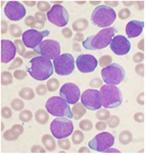Welcome from Professor M Thirumala Krishna, Head of the West Midlands Postgraduate School of Pathology! This is the homepage for the West Midlands School of Pathology. Our School incorporates Medical Microbiology - Virology, and Infectious Diseases. Histopathology, Chemical Pathology/Metabolic Medicine and Immunology and Allergy.
The site provides a portal for prospective trainees interested in joining one of the specialities as well as an area for current trainees to access various resources. The site is currently under development and further information will be available shortly. In the meantime we hope you find the site informative, and if you are considering applying to any of the specialities please follow the links in the sidebar. Contacts are available at the bottom of the page.
What is Pathology?
 Pathology is the science of causes of disease and the ways in which disease processes affect our body in particular it is the branch of medicine that deals with the laboratory evaluation of samples of body tissue for diagnostic or forensic purposes and response to treatment. Today’s medicine, with its host of specialties, relies upon modern, accurate and dynamic pathology. Pathology is an exciting speciality, particularly with the development of new techniques including molecular and genetic diagnoses, and its ever closer integration into frontline clinical care.
Pathology is the science of causes of disease and the ways in which disease processes affect our body in particular it is the branch of medicine that deals with the laboratory evaluation of samples of body tissue for diagnostic or forensic purposes and response to treatment. Today’s medicine, with its host of specialties, relies upon modern, accurate and dynamic pathology. Pathology is an exciting speciality, particularly with the development of new techniques including molecular and genetic diagnoses, and its ever closer integration into frontline clinical care.
HEE West Midlands
By promoting excellence and providing the best trained pathologists possible the West Midlands Postgraduate School of Pathology aims to produce high quality clinicians and scientists who can meet the challenges of the local healthcare  environment and are well prepared to move into senior, clinical and academic positions at the end of their training.
environment and are well prepared to move into senior, clinical and academic positions at the end of their training.
Our programmes are designed to help trainees achieve the standards of the curricula set by the General Medical Council, Royal College of Pathologists and the Royal College of Physicians. The training programmes are long established and based in departments throughout the West Midlands. They are run by experienced Programme Directors and Educational Supervisors, and provide trainees with a wealth of training experience and opportunities.
Deanery areas of responsibility include:
· Managing training programmes and posts
· Quality assurance processes that are designed to ensure the highest quality training
· Maintaining links with the Colleges
· Curriculum delivery
· Teaching and learning
· Trainee Wellbeing
· Trainee recruitment
· Faculty development
· Managing assessments
· Resource management
Living in the West Midlands
The West Midlands accounts for 11% of the population of England. Living here offers many benefits, including cultured city life, affordable housing, good connections to other parts of the UK and beautiful countryside. For more information  on the West Midlands click here.
on the West Midlands click here.
Training is delivered at various teaching hospitals, and District General Hospitals. Most trainees choose to stay in the region following completion of higher specialist training highlighting the quality of work/life balance that exists. The organisation of placements and where trainees are based differs between the specialties, so please follow the link to the specialty you are interested for more detail.
|
Specialty
|
Name
|
Role title
|
Trust
|
Email
|
|
Pathology
|
Professor Thirumala Krishna
|
Head of School
|
NHS England WT&E
|
thirumala.krishna@nhs.net
|
|
Histopathology
|
Kanwal Sikand
|
TPD Histopathology
|
University Hospitals Birmingham NHS Foundation Trust
|
kanwal.sikand@nhs.net
|
|
Medical Microbiology
|
Peter Munthali
|
TPD Medical Microbiology and Virology
|
University Hospitals Coventry and Warwickshire NHS Trust
|
peter.munthali@uhcw.nhs.uk
|
|
Metabolic Medicine
|
Helen Ashby
|
TPD Metabolic Medicine
|
The Royal Wolverhampton NHS Trust
|
helen.ashby@nhs.net
|
If you wish to speak with any current trainees, please contact the West Midlands Trainee Representatives- Dr Natasha Weston at nweston@doctors.org.uk and Dr Kiran Bhatt at Kiranmai.Bhatt@heartofengland.nhs.uk
Find out more
To find out more please visit the Royal College of Pathologists website. For haematologists and immunologists, the Royal College of Physicians website provides further information.